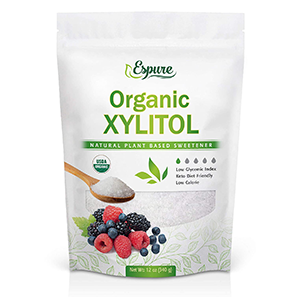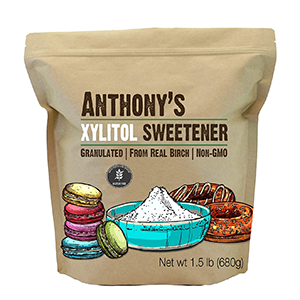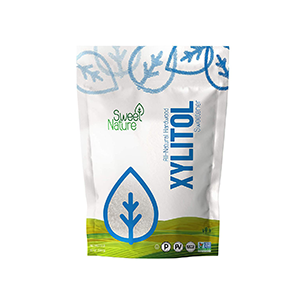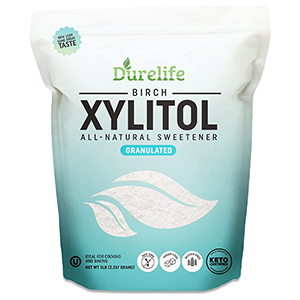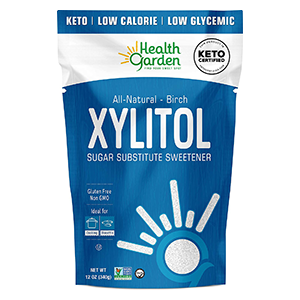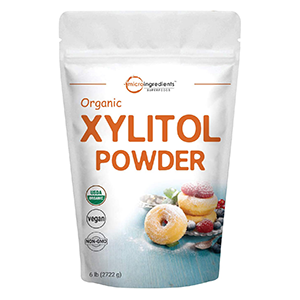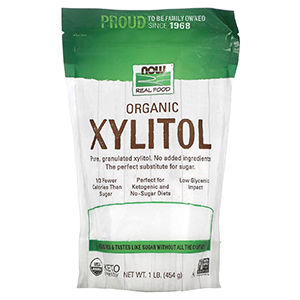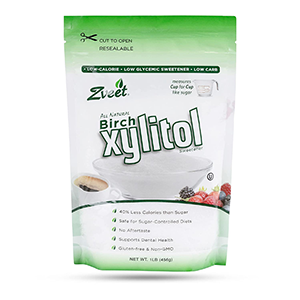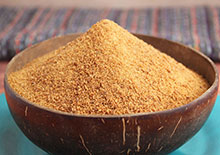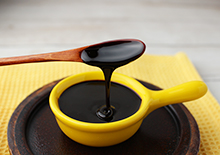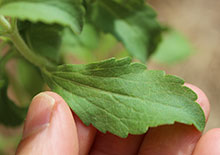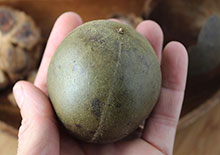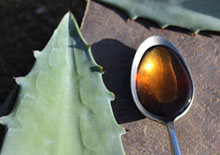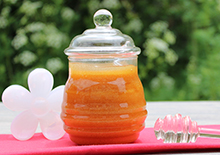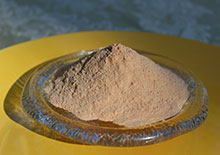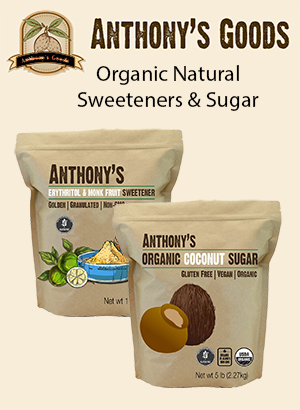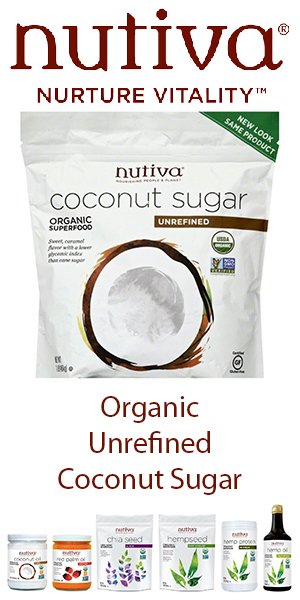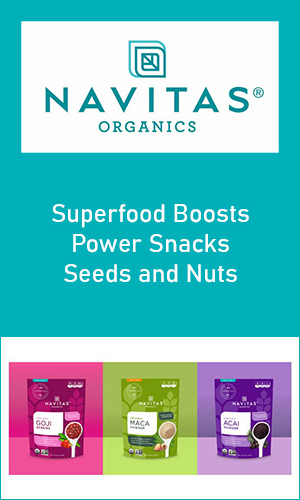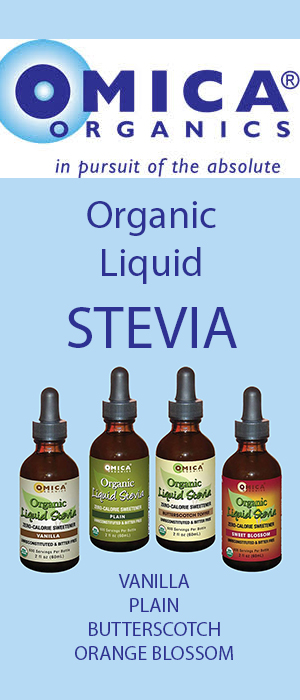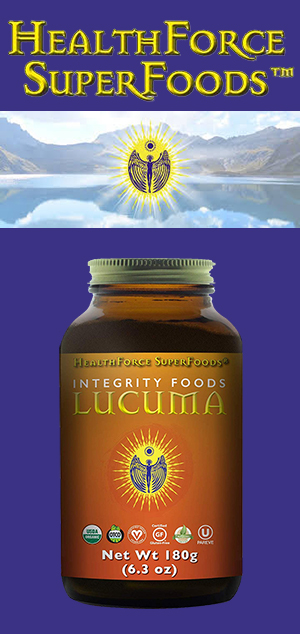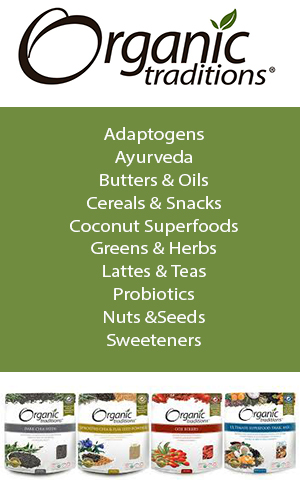- Home
- Sweeteners
- Xylitol Pros and Cons
Xylitol Pros and Cons, Is It Bad for You?
CON #1 - A Lab-Produced Sugar
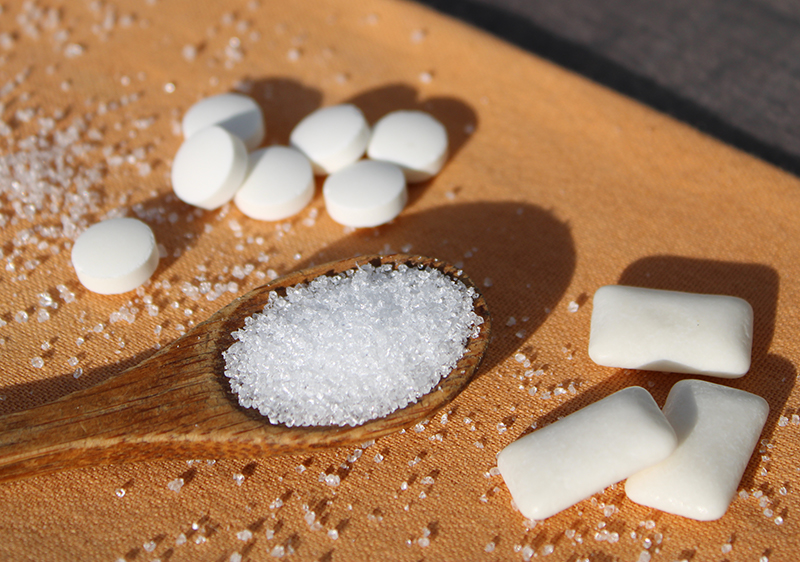
Xylitol (pronounced zy-li-tawl) is a lab-produced sweetener not exactly a natural unrefined one.
It is a type of sugar alcohol that is synthesized from plant matter containing xylan, a hemicellulose polysaccharide that's hydrolyzed into xylose sugar.
Xylose is then chemically converted into the crystalline sugar alternative we know as xylitol. This is the same process used to make other polyols and sugar substitutes such as erythritol, mannitol and sorbitol.
To produce large quantities of bulk crystals xylitol is made from either corn cobs or birch tree bark. In the past, when xylitol first became popular as a sugar alternative, there was some speculation on which source was better, but generally, they are viewed as producing the same identical molecular substance.
Bulk sugar crystals are commonly made from birch bark xylitol whereas sweetened commercial products frequently use xylitol made with corn cob xylan. It's always best to get non-GMO and/or organic xylitol, if possible, especially if corn-based as it's one of the top genetically modified crops.

PRO #1 - Low Glycemic Sweetener
Although xylitol is definitely a highly processed sugar, it has advantages that certainly make it an upgrade from many high glycemic sugars and artificial sweeteners like aspartame and saccharin.
Xylitol has a lower glycemic index (GI) which is defined as a measurement of how fast a food can raise blood sugar.
It is widely used in sugar-free commercial products such as condiments, candy and desserts in addition to being very popular in gum and mints.
Xylitol's GI is only between 7-11 compared to white sugar, which usually has glycemic index of between 60-70.
This can be considered a positive as it does not cause spikes in blood sugar after consumption and throw off energy levels. This aspect, as well as the fact that the body doesn't require insulin to metabolize it, has made it a popular sweetener option for diabetics. Likewise, it is on the list of keto diet low-carb sweeteners.
While it is often considered an antidiabetic sugar substitute, it may cause a small rise in blood glucose (*). It's important to do your own blood sugar testing to confirm if it's appropriate for your individual needs.
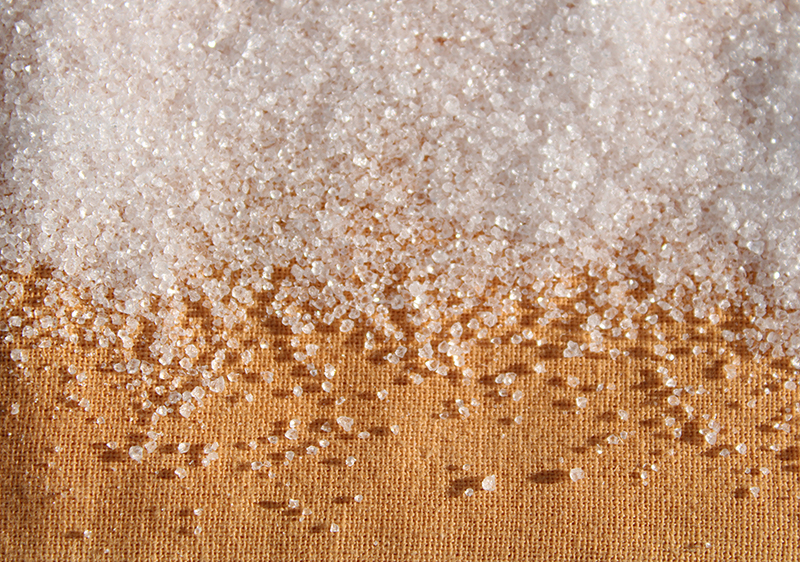
CON #2 - Gastrointestinal Disturbances
Is xylitol bad for you? Yes, if you have sensitive digestive issues like IBS or colitis, perhaps other natural sweeteners may be more suitable.
One of the most well-known side effects of using xylitol, especially in excessive amounts over 40-60 grams, is its notorious effect on the GI tract.
Xylitol is a non-digestible carbohydrate. Most ingested xylitol makes its way into the intestines where it pulls in water and is fermented by gut microbiota.
If you are not used to taking it or have a low tolerance, sudden intake at medium to higher doses can cause mild to major gastrointestinal disturbances. (*)
This has been known to include anything from bloating, nausea, flatulence, loose stools to major laxative actions.
Also, keep in mind that ylitol is highly toxic to dogs and it may be best to avoid use if you have one.
PRO #2 - Low in Calories
Although xylitol is not a zero-calorie sweetener because it contains the sugar known as XYLOSE, it has about 40% fewer calories than white sugar.
This can make it a better sugar alternative if weight management is a health objective. Typically, 1 tablespoon (3 teaspoons) of xylitol is about 30 calories compared to the equivalent of table sugar at 48 calories.
We would definitely consider it an upgrade from other popular weight-loss sweeteners like saccharin and aspartame, which can have detrimental long-term side effects.
CON #3 - Cardiovascular Risk
When it comes to the question of whether or not xylitol is bad to consume, many refer to a recently promoted potential health risk called MACE or "major adverse cardiovascular event".
This was first announced in 2024 when xylitol made news headlines (especially in one common U.S. media source) suggesting its use was linked with cardiovascular issues, specifically blood clot formation.
This was all largely based on one 2024 European clinical study. A year earlier in 2023, many members of the same scientific group also claimed the sugar alcohol erythritol caused the same issues.
When reviewing the "Supplementary Material" on this main 3-part observational cohort study on xylitol ingestion, we looked for average amounts consumed. The only mentioned information we came across was using a "standardized artificially sweetened beverage (300 mL) containing 30 g of xylitol" and another described as a "standardized drink of xylitol".
According to our investigation, we couldn't find any other past science indicating the same final results. In fact, we found one 2023 trial study on both xylitol and erythritol that showed "no significant effects on vascular functions".
From our perspective, this subject definitely warrants more scientific inquiry.
If you’re concerned about potential negative effects, you may want to use other low glycemic sweeteners like stevia or monk fruit.
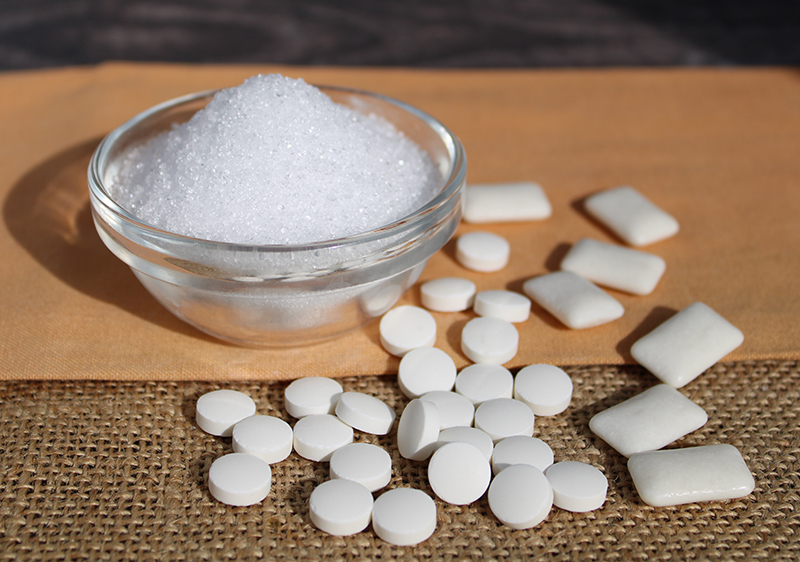
PRO #3 - Dental Health
Ever since the mid-1970s and the Finnish research known as the "Turku Sugar Studies", xylitol use has been associated with significantly increasing dental health and preventing cavities.
Still to this day, the sweetener is widely utilized in oral care products like toothpaste, dental chewing gums and mints for its noteworthy antimicrobial and alkaline properties.
Ultimately, we believe that long-term dental health comes from adhering to a health-promoting diet and lifestyle, which includes largely avoiding processed, refined and nutrient-depleted foods. Xylitol, however, might be a great one to include as a preventative for general oral hygiene
It really only takes very small amounts, 1 or 2 grams, of xylitol to do the job for such purposes.
CON #4 - Not Exactly Like Sugar
While xylitol has about the same sweetness as white sugar and definitely resembles it in appearance, it is often stated that it makes a great sugar substitute in recipes. A one-to-one ratio seems to the general measurement rule.
However, a big drawback to some home cooks is that it does not caramelize like cane sugar does.
So, depending on what dessert or baked good you’re using it for, this can be a problem and provide less than desired end results. It's also known to lower the freezing point which can affect frozen treats.
One major disadvantage of using xylitol instead of sugar is that it is slightly more expensive due to the processing required to make it.
The approximate cost in 2024 for bulk organic xylitol is about 10 dollars a pound whereas organic cane sugar is about 5 dollars a pound.
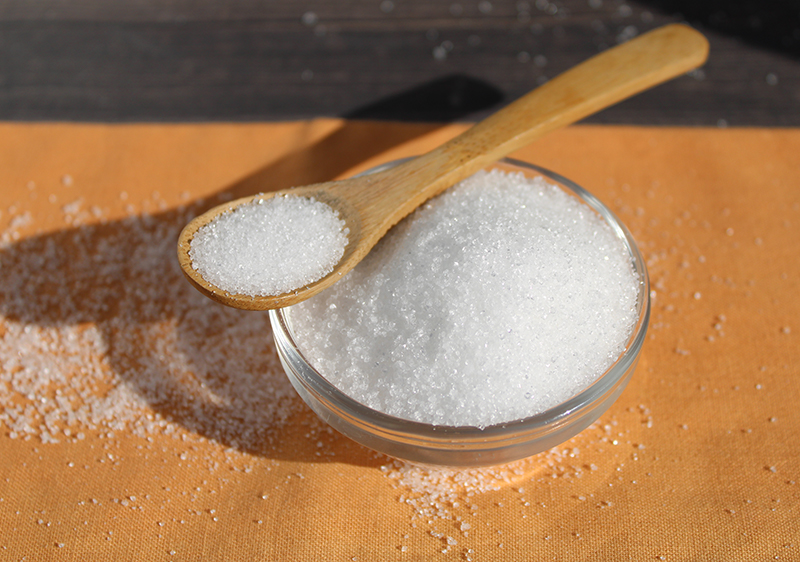
PRO #4 - Alkaline Not Acidic
Another mentioned advantage of xylitol is that is it not acidic like table sugar and other sweeteners but ALKALINE.
This can be a plus up if you're on a low-acid diet and need a sweetener option.
Excessive intake of foods, drinks high in refined cane sugar have been known to wreak havoc on the body over time, which can lead to weight gain, high blood pressure, potential diabetic issues and emotional mood swings.
Precautions:
Higher intake of sugar alcohols, like xylitol, can lead to possible laxative effects. Xylitol is highly toxic to dogs. Consult a healthcare professional before using xylitol if pregnant, nursing, if you're taking any medications or if you have a serious health condition.
Shop Related Products (About Affiliates & Amazon Associate Paid Links)
Affiliate Disclaimer: This section contains affiliate product links. If you make a purchase through our recommended links, we receive a small commission at no additional cost to you. Thanks for the support.
